Millions of Russian-speaking former citizens of the Soviet Union play a key part in the Russian economy by sending billions of rubles back to their own republics while they work in Russia
Published:
25 March 2003 y., Tuesday
Some of the workers build dachas in the Moscow region, while others drive trolleybuses in Moscow, sell vegetables in open markets or bring in the harvest in agricultural regions.
For the many families of these laborers, the paychecks are their key to survival. About a quarter of the households in Armenia and Azerbaijan are dependent on transfers from family members working in Russia, said Zhanna Zaionchkovskaya, head of the Academy of Sciences' Center for Migration Studies.
Families in other republics, including Georgia, Ukraine, Moldova and Tajikistan, also count on the money, but there are no reliable figures on the amounts involved, she said.
Nationalities Minister Vladimir Zorin said last year that 2 million Armenian and 1.5 million Azeri migrants are in Russia, while the next-largest groups are from Ukraine, Moldova and Tajikistan.
But most of the migrants are not registered in Russia, leaving them open to exploitation and extortion from employers and law-enforcement agencies.
Many of the workers are ethnic Russians unable to get citizenship since the government made it more difficult last year. Many have been living and working in the country for years. The law on foreigners, introduced in November, is intended to either legalize these workers or kick them out.
Šaltinis:
themoscowtimes.com
Copying, publishing, announcing any information from the News.lt portal without written permission of News.lt editorial office is prohibited.
The most popular articles
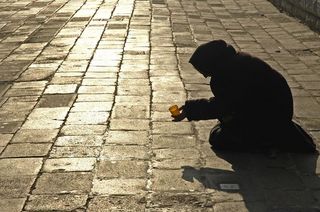 The dark spectre of unemployment is stalking Europe and 2010 is the year it has earmarked in the fight against poverty.
more »
The dark spectre of unemployment is stalking Europe and 2010 is the year it has earmarked in the fight against poverty.
more »
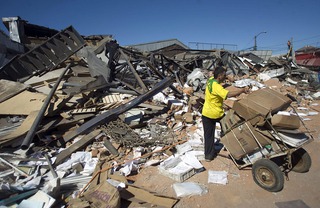 Just about a month after a devastating 8.8-magnitude earthquake destroyed vast swaths of Chile’s south central region, residents in the coastal town of Dichato continue to wait for much needed aid.
more »
Just about a month after a devastating 8.8-magnitude earthquake destroyed vast swaths of Chile’s south central region, residents in the coastal town of Dichato continue to wait for much needed aid.
more »
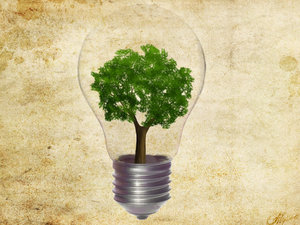 The European Parliament will once again mark “Earth Hour” by switching off lights in all its buildings for one hour this Friday and Saturday.
more »
The European Parliament will once again mark “Earth Hour” by switching off lights in all its buildings for one hour this Friday and Saturday.
more »
 Only one in 10 board members of Europe's biggest listed companies is a woman and all central bank governors in the EU are male.
more »
Only one in 10 board members of Europe's biggest listed companies is a woman and all central bank governors in the EU are male.
more »
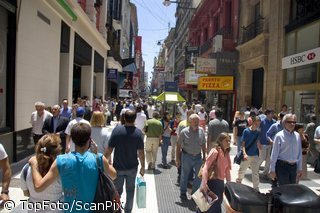 New rules in 10 EU countries would let international couples choose which country’s law applies to their divorces.
more »
New rules in 10 EU countries would let international couples choose which country’s law applies to their divorces.
more »
 The EP's Committee on Culture and Education urges the EU to promote non-formal education, combat youth unemployment and help young people with special needs.
more »
The EP's Committee on Culture and Education urges the EU to promote non-formal education, combat youth unemployment and help young people with special needs.
more »
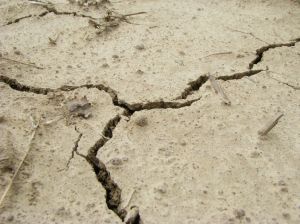 More than 50 million people in southwest China are struggling to cope with what is being called the worst drought in living memory.
more »
More than 50 million people in southwest China are struggling to cope with what is being called the worst drought in living memory.
more »
 Ideas sought on how to improve train, energy and banking services - a major cause of headaches for consumers in Europe.
more »
Ideas sought on how to improve train, energy and banking services - a major cause of headaches for consumers in Europe.
more »
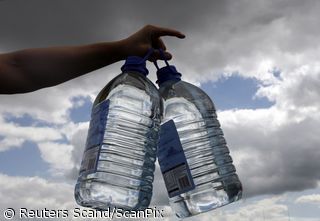 The EBRD is supporting the rehabilitation of the water and wastewater system in the city of Aktau, in the Mangystau region of Kazakhstan, with a loan in Kazakhstan Tenge (KZT) equivalent to €5.8 million (KZT 1.2 billion) to Aktau TVS&V, the municipal water and district heating company serving the city.
more »
The EBRD is supporting the rehabilitation of the water and wastewater system in the city of Aktau, in the Mangystau region of Kazakhstan, with a loan in Kazakhstan Tenge (KZT) equivalent to €5.8 million (KZT 1.2 billion) to Aktau TVS&V, the municipal water and district heating company serving the city.
more »
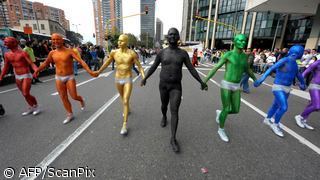 The world’s biggest St. Patrick’s Day parade bathed New York’s Fifth Avenue in a sea of green.
more »
The world’s biggest St. Patrick’s Day parade bathed New York’s Fifth Avenue in a sea of green.
more »